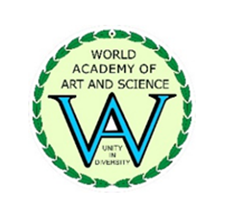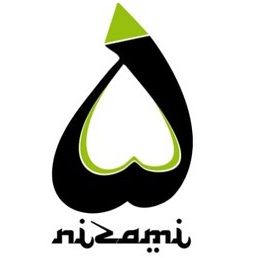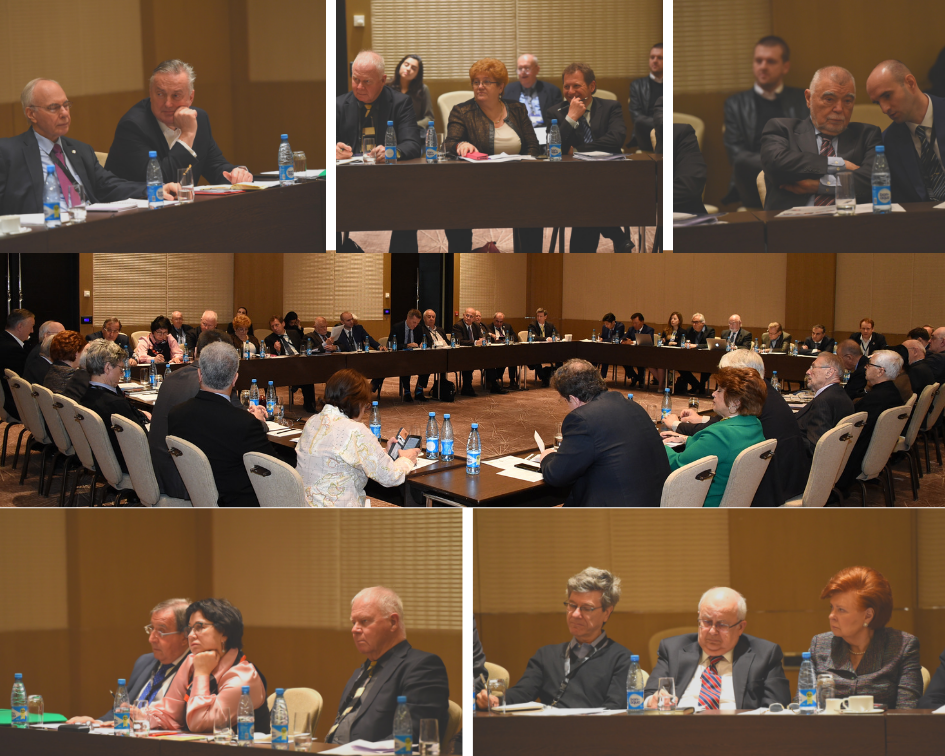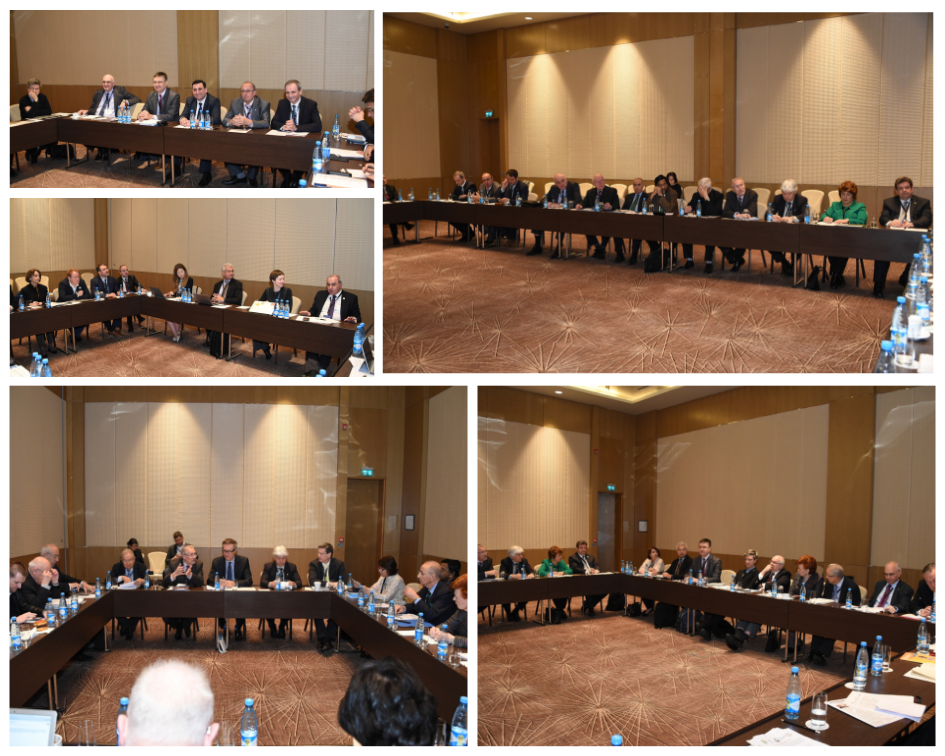VII GLOBAL BAKU FORUM

Global Leadership in the 21st century
In Spring 2019 WAAS and the United Nations Office at Geneva (UNOG) agreed to collaborate on a one-year project to fill the global leadership vacuum. The initiative seeks to promote the emergence of the dynamic leadership needed at the global level to successfully address the major environmental, social and economic challenges facing humanity. The project has been designed in collaboration with Michael Møller, Director-General of The UN in Geneva. It is being coordinated by Garry Jacobs, WAAS CEO; Donato Kiniger-Passigli, WAAS Special Representative to the UN; and David Chikvaidze, Chief of Staff for the Director-General of UNOG and WAAS Fellow.
The project will be undertaken by the WAAS-UNOG project team in collaboration with partner organizations. The research phase of the project will involve a series of expert consultations, workshops and conferences with UN agencies, national governments, national academies, scientific research institutions, business and financial organizations, universities, NGOs and youth representatives to identify effective leadership strategies and success stories. The research findings will be presented at a major international conference at Palais des Nations, Geneva in 2020 and in a written report to the UN.
The project will seek to develop a positive vision of the future of humanity, assess critical leadership qualities, identify untapped resources, and develop strategies to generate widespread public awareness and a global social movement in support for implementation of the UN Sustainable Development Goals (SDGs).
A detailed background paper for the project has been published in the May 2019 issue of Cadmus Journal available for download here.

 A New World Order
A New World Order
with a special WAAS meeting on
Global Leadership in the 21st Century
March 14-17, 2019 – Baku, Azerbaijan
The 7th Global Baku Forum (7GBF) came at a particularly critical moment and a difficult crossroads in governance of the globe. Multilateralism is in retreat. The authority of international institutions is in decline. Big Power politics is regaining legitimacy. Democracies are struggling with profound existential questions. Cherished foundational values are being challenges. Xenophobia and intolerance are threatening open borders and the status of religious and ethnic minorities. The authority of Science and integrity of the media are under siege. New technologies are emerging faster than society and culture can adapt. Keynote speakers will include Azerbaijan President Ilham Aliyev and addresses by current and former heads of state, foreign ministers, international diplomats and thinkers, including Ashraf Ghani (Afghanistan), Kerry Kennedy (USA), Fareed Zakaria (USA), Jeffrey Sachs (USA), Helen Clark (New Zealand), Vaira Vike-Freiberga (Latvia), Aleksander Kwasniewski (Poland), Tarja Halonen (Finland), Ilir Meta (Albania) and Wu Hailong (China).
Global Leadership in the 21st Century
Leadership in ideas that can lead to action
Special event organized by the World Academy of Art & Science
On March 17th a special event was organized for WAAS Fellows, special invitees and select 7GBF participants to discuss in open roundtable format the future of global leadership in the 21st century. Global leadership appears to be virtually absent at this critical juncture in human affairs when it is most needed to prevent the loss or reversal of the most important gains since the End of the Cold War. This meeting sought ways to revive and develop different types of leadership at the global level. It explored strategies designed to generate awareness of unutilized global potentials, mobilize and direct global social energies and resources for practical application, strengthen the effectiveness and functioning of existing institutions of governance, and release a broad-based social movement to transform the compelling challenges confronting humanity today into catalysts for rapid global social evolution.
The format of the special event was a moderated open roundtable for discussion of critical issues and constructive approaches for change.
Critical Global Leadership Questions for Discussion
- What type and forms of global leadership are needed to effectively address these global challenges?
- How can the global leadership gap be filled and where is the leadership to come from?
- How can we reconcile continued economic development with ecological security and the rights of future generations?
- What role can nation states and international institutions play individually and collectively to fill the leadership void?
- What role can civil society, universities, academies and business play?
- How will the multiple lines of social evolution that have led up to the 21st century develop and interact with one another in the future and what will be the consequences?
- By what means can the continued distribution and democratization of political and social power at the national and global level be achieved?
- How can our educational system be transformed into an effective instrument for meeting the challenges of human development in the 21st century?
- What organizing principles are capable of addressing all the pressing challenges confronting humanity today and reconciling the contradictions inherent in the unilateral and unidimensional strategies pursued by different nations to address them separately from each other and from the efforts of other nations?
- How can we reconcile the apparently contradictory objectives of economy and ecology; technology, employment and social welfare; social power and democratization; multiculturalism and national identity; national sovereignty and global governance; national security and global cooperative security?
- What steps can be taken to garner the direct support of the silent voiceless majority?
- What opportunities exist for concerted action and what gains can it achieve?
- How can we combine, coordinate and harmonize leadership initiatives at the global, multilateral, bilateral and national level?
- How can we ensure that rapid technological advances are made to serve rather than threaten and undermine rising levels of human welfare and security?
- How will nationalities respond and accommodate to increasing levels of multicultural contact and diversity?
- How will nation-states be motivated to cede greater authority to empower effective, democratic international institutions?
- How can human rights and dignity gain primacy over the exercise of power by the privileged and wealthy?

 A New World Order
A New World Order
with a special WAAS meeting on
Global Leadership in the 21st Century
March 14-17, 2019 – Baku, Azerbaijan
Participants List
| 1 | Rosalia Arteaga Serrano: Former President of Ecuador; Member, Editorial Board of Encyclopædia Britannica; Fellow, WAAS |
| 2 | Goran Bandov: Lawyer and Political Scientist; Associate Professor and Vice Dean at Dag Hammarskjöld University College of International Relations and Diplomacy, Croatia; Associate Fellow, WAAS |
| 3 | Hikmet Çetin: Former Minister of Foreign Affairs, Turkey; Former Speaker of the Turkish Grand National Assembly; Fellow, WAAS |
| 4 | David Chikvaidze: Head of the Secretariat of the Director-General of the UN Office in Geneva; Vice president, Swiss Forum for International Affairs; Fellow, WAAS |
| 5 | Emil Constantinescu: Former President, Romania; President, The Institute for Advanced Studies in Levant Culture and Civilization; Member, WAAS Board of Trustees |
| 6 | Frank Dixon: Representative of WAAS to the UN in New York; Founder, Global System Change; Former Managing Director of Research, Innovest Strategic Value Advisors, Inc.; Author, Global System Change series of books; Sustainability and System Change Consultant; Associate Fellow, WAAS |
| 7 | Momir Đurović: Former President of the Montenegrin Academy of Sciences and Arts; Professor Emeritus of Electrical Engineering at the University of Montenegro; Member, WAAS Board of Trustees |
| 8 | Rodolfo Fiorini: Professor of Bioengineering, Politecnico di Milano University, Italy; Member of AAAS, IEEE and EMBS; Founder and Coordinator of the Research Group on Computational Information Conservation Theory; Fellow, WAAS |
| 9 | Jerome C. Glenn: Co-founder and CEO of The Millennium Project on Global Futures Research; Co-author of State of the Future reports; Fellow, WAAS |
| 10 | Jonathan Granoff: President, Global Security Institute; Adjunct Professor of International Law, Widener University School of Law, USA; Fellow, WAAS |
| 11 | Ruslan Grinberg: Scientific Director, Institute of Economics, Russian Academy of Sciences; Member of the Scientific Council of Russian Federation Security Council; Professor, Moscow School of Economics, Lomonosov Moscow State University, Russia; Fellow, WAAS |
| 12 | Heitor Gurgulino de Souza: President of World Academy of Art & Science and World University Consortium; Former Rector of UN University; President, Brazilian Chapter and Former Vice President, Club of Rome |
| 13 | David Harries: Chair, Canadian Pugwash; Associate Executive Director, Foresight Canada; Member, Board of Directors, Global Initiatives Project and Proteus Canada; Head, Leadership and Management community, IdeaConnector.net; Fellow, WAAS |
| 14 | Garry Jacobs: CEO, World Academy of Art and Science and World University Consortium; Vice President, The Mother’s Service Society, India; Member, Club of Rome |
| 15 | Ivo Josipović: Jurist, Composer and Politician; Former President of Croatia; Fellow, WAAS |
| 16 | Donato Kiniger-Passigli: WAAS Representative to the UN in Geneva; Head of the Fragile States and Disaster Response Group at the International Labour Office (ILO); Fellow, WAAS |
| 17 | Zlatko Lagumdžija: Former Prime Minister of Bosnia and Herzegovina; Professor, Computer Science and Informatics, Faculty of Electrical Engineering, University of Sarajevo, Bosnia and Herzegovina; Fellow, WAAS |
| 18 | Stjepan Mesić: Former President of Croatia; Former President of the Executive Council, Socialist Republic of Croatia; Fellow, WAAS |
| 19 | Tolegen Muhamejanov: President, Peace Through Culture Association; Co-Chair, World Forum of Spiritual Culture; Former Member, Kazakhstan Senate; Fellow, WAAS |
| 20 | Rajendra Pachauri: Former Chairman, Intergovernmental Panel on Climate Change (IPCC); Former Director-General, The Energy and Resources Institute (TERI), India; Member, WAAS Board of Trustees |
| 21 | Natalia Pogozheva: WAAS Coordinator for Ukraine; CEO of Green Education Ukraine Foundation; Associate Fellow, WAAS |
| 22 | Thomas Reuter: Professor, Asia Institute, The University of Melbourne, Australia; Senior Vice-President, International Union of Anthropological and Ethnological Sciences; Executive member, International Social Science Council; Fellow, WAAS |
| 23 | Tibor Tóth: Former Executive Secretary of the Preparatory Commission for the Comprehensive Nuclear-Test-Ban Treaty Organization; Former Ambassador and Permanent Representative of Hungary to the United Nations in Geneva and Vienna and Organisation for the Prohibition of Chemical Weapons (OPCW) in the Hague; Member, WAAS Board of Trustees |
| 24 | Marcel Van de Voorde: Professor, University of technology Delft, Netherlands; Executive Advisor to Minister for Education and Research, Serbia; Member, Scientific Advisory Board of the French National Assembly & Senate; Fellow, WAAS |

 A New World Order
A New World Order
with a special WAAS meeting on
Global Leadership in the 21st Century
March 14-17, 2019 – Baku, Azerbaijan
Leadership in ideas that can lead to action
Special event organized by World Academy of Art & Science
Click here to view/download discussion paper

 A New World Order
A New World Order
with a special WAAS meeting on
Global Leadership in the 21st Century
March 14-17, 2019 – Baku, Azerbaijan

